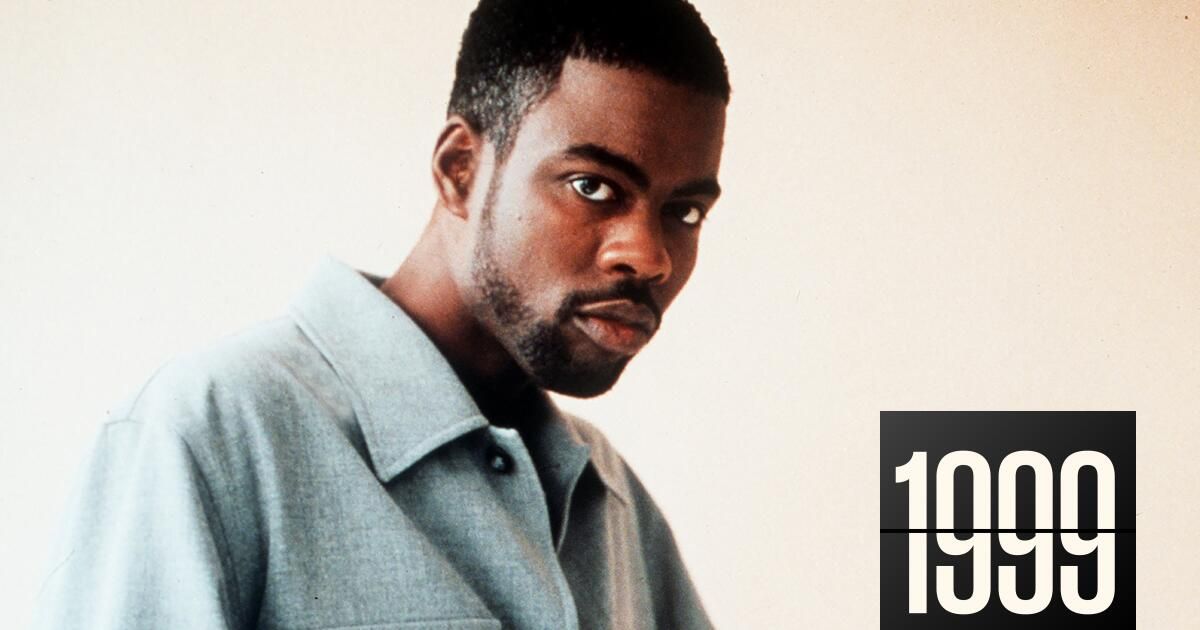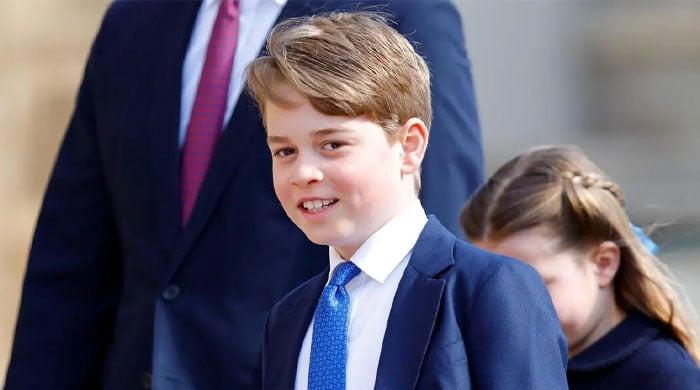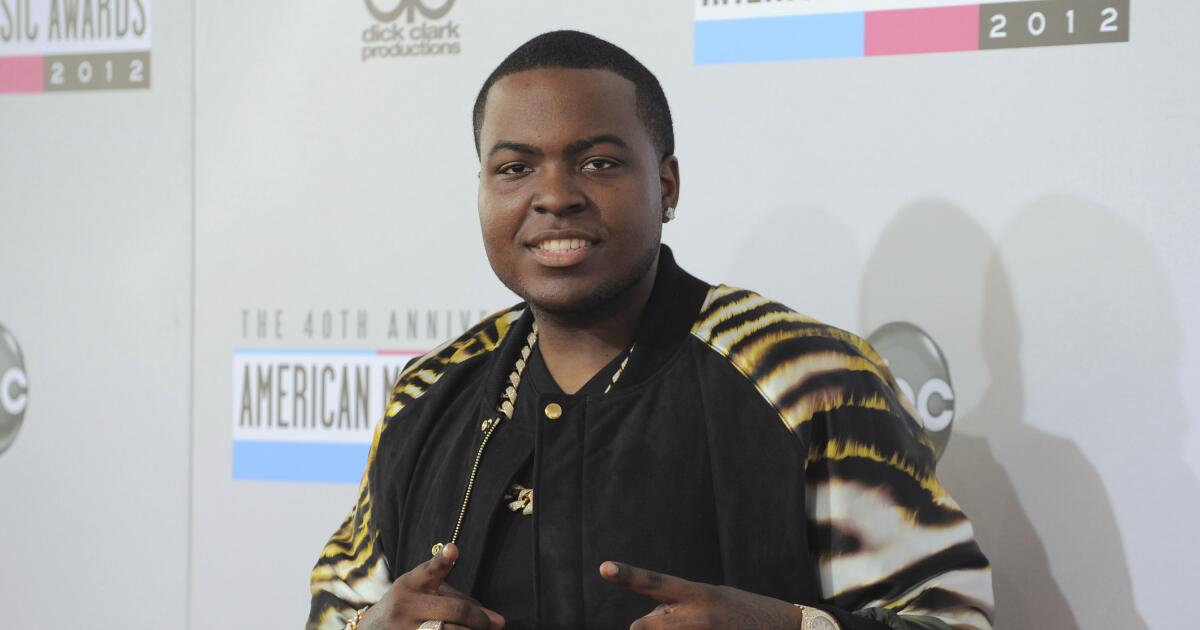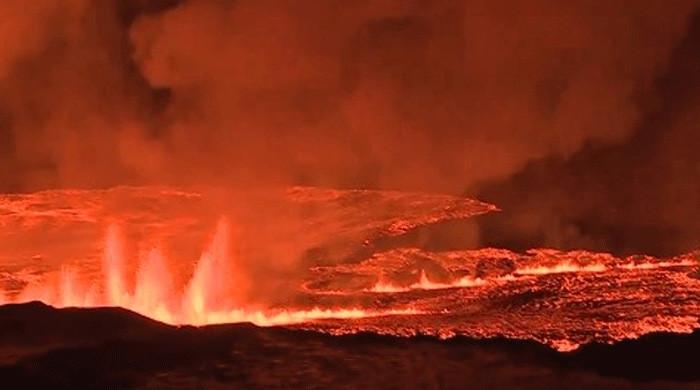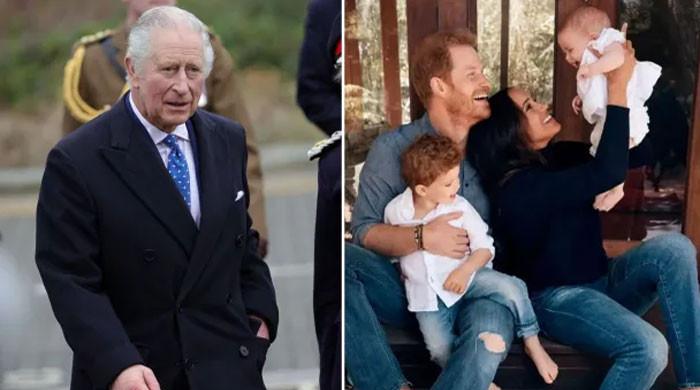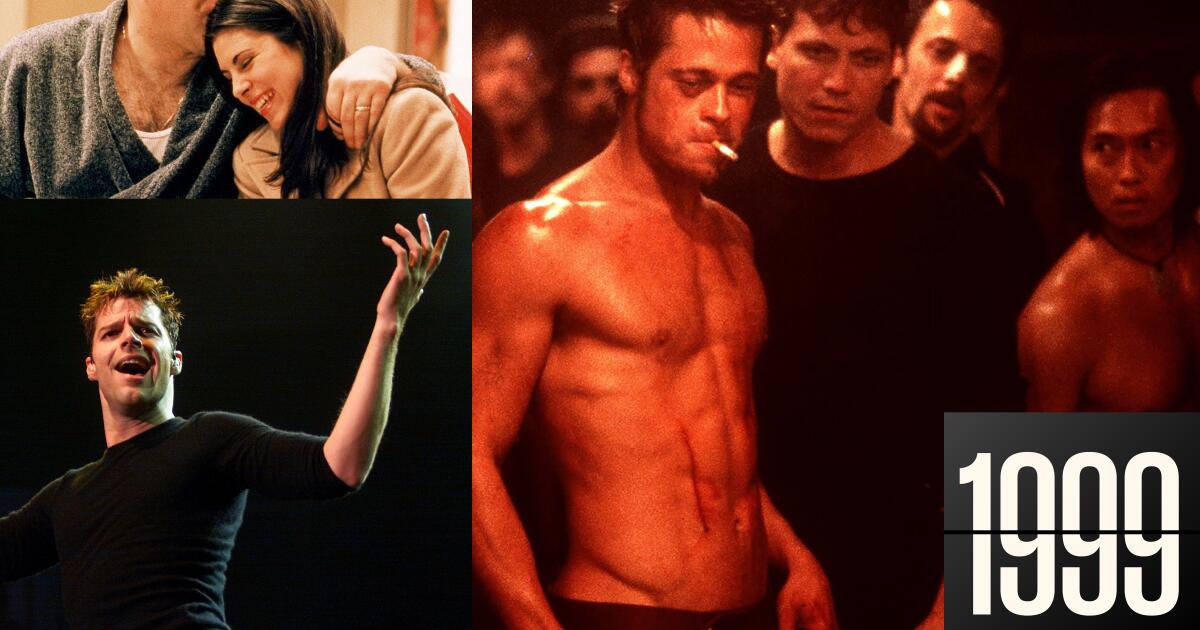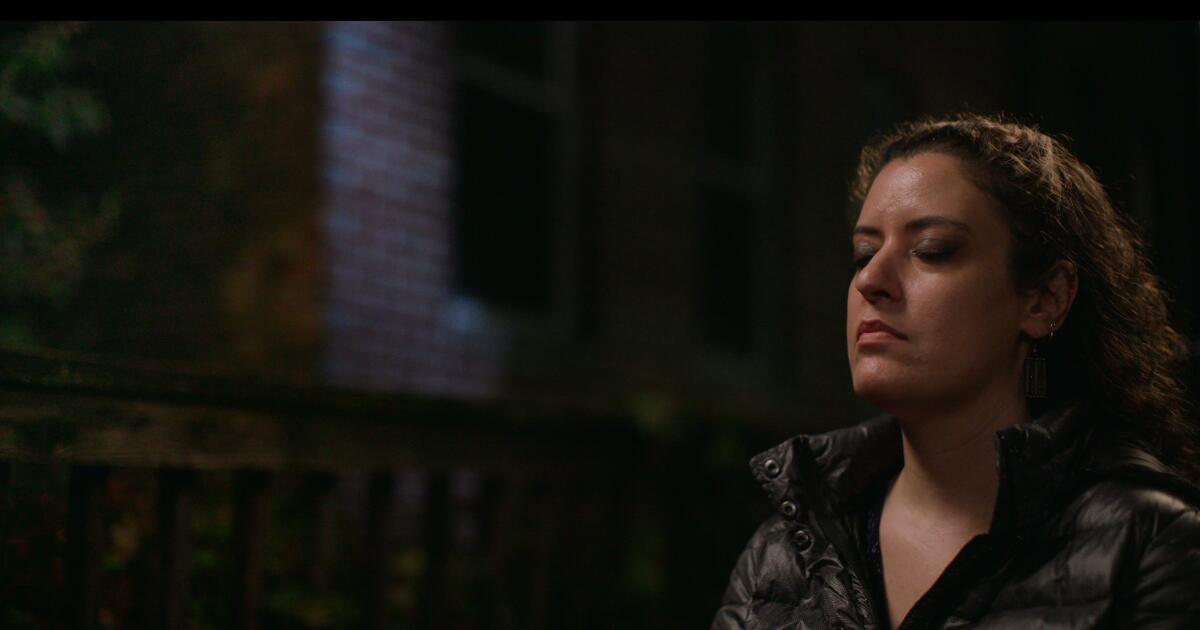School shootings, presidential sex scandals, taxes, racism, and the big piece of chicken.
For all the ways the world has changed since Chris Rock took the stage to deliver his third special, “Bigger & Blacker,” which premiered on HBO on July 10, 1999, all you have to do is watch him to realize that our country’s concerns remain the same. Taking the stage in an oversized leather coat, looking like Morpheus from the year’s hit movie “The Matrix,” Rock drove a real sword through the heart of the country that made us laugh until it hurt, and kept going until the pain felt good.
At a time when comedy specials still felt special because only those at the very top were allowed to have one, Rock’s follow-up to the groundbreaking “Bring the Pain” was a balancing act that reminded us that the multi-hyphenate — then at the height of his celebrity — ultimately values one thing above all else: telling jokes that ring true for black Americans, with one-liners that are quotable to anyone with a pulse and a sense of humor.
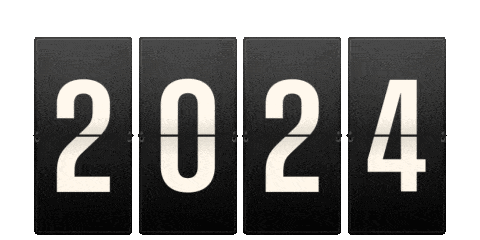
The 1999 project
All year long, we'll be celebrating the 25th anniversary of pop culture milestones that transformed the world as we knew it and created the world we live in today. Welcome to The 1999 Project from the Los Angeles Times.
After filming a major motion picture (“Lethal Weapon IV”) and hosting hit TV shows (“Saturday Night Live,” “The Chris Rock Show”), Rock could have played it safe and softened the edges of his act to avoid turning off mainstream audiences. Instead, he turned up the volume by doing what every great comedian does when faced with controversy: doubled down.
Despite his diminutive frame (which we now know can take a beating), Rock's '90s persona was caustic, aggressive and truthful, right down to the way he paced the stage. The purpose of his jokes matched his stride, as he would open with jokes about Columbine and the “trenchcoat mafia.”
“What the hell is wrong with these white kids shooting up schools? They don’t even wait until 3pm. Killing people in the morning is not right.”
At times like these, comics of Rock's caliber know how to distill tragedy down to its most hilariously simplistic elements. The image of a group of homicidal misfit teenagers who have more friends than Rock did when he was in school turned mass murder into a joke that killed its audience.
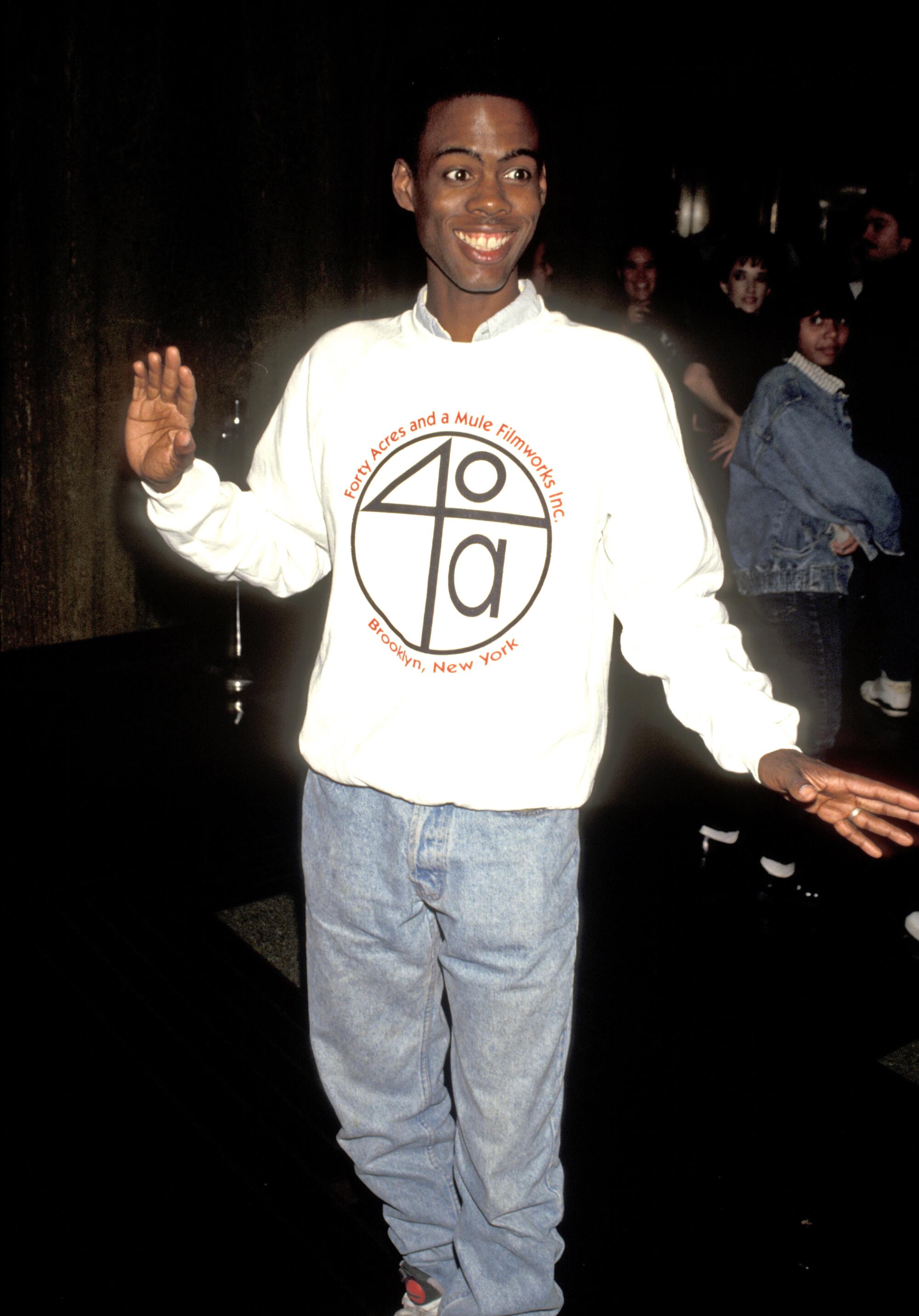
Chris Rock at a party for the cast and crew of “Saturday Night Live” in the early 1990s.
(Ron Galella / Ron Galella Collection via Getty)
You only have to rewatch the crowd reactions throughout the special to see its effect. When was the last time you saw crowd laughter at a special that was almost as funny as the jokes themselves? People falling over their loved ones sitting next to them, standing up with their best Arsenio-esque “Whoop! Whoop!” and rolling down the aisles like spirit-driven Pentecostals. The absence of cellphone cameras makes it feel like a moment when the entire crowd at the iconic Apollo Theater in Harlem was together, which is how the special made people watching at home feel.
To this day, Rock’s jokes about the differences between men and women — from former President Bill Clinton and First Lady Hillary Clinton to people in our own families — made “Bigger & Blacker” an instant classic. Most Rock fans can quote the special by heart after 25 years.
Some of the best lines (that we can repeat):
“We don’t need gun control, we need bullet control. I think all bullets should cost $5,000, because if a bullet cost $5,000, there would be no more innocent bystanders.”
“It’s all about mom, mom, mom. Nobody cares about dad. Think of all the things a real dad does… and what does dad get for all his work? The big piece of chicken, that’s all dad gets.”
“Clinton was almost impeached for what? Why? For lying about [oral sex] so his wife wouldn't find out. Is that against the law? Do you need the Supreme Court for that? You could have taken that case to the 'People's Court.' You could have taken that case to Judge Judy.”
“We have all these taxes… You don’t get the money until you’re 65, while the average black man dies at 54. Shit, we should get Social Security at 29. We don’t live that long, hypertension, high blood pressure, the NYPD, something can get to you.”
“When I was a kid, all I had was Robitussin. No matter what you had, Robitussin was the best. 'Dad, I have asthma.' 'Robitussin!' 'I have cancer!' 'Robitussin!' 'I broke my leg.' Dad would pour Robitussin on him.”
“They will never cure AIDS, don’t even think about it. There is no money in the cure, the money is in the medicine. That’s how a drug dealer makes money, with his profits. That’s all the government is, a bunch of fucking drug dealers!”
Even today, most comedy stars at the peak of their commercial success wouldn’t come close to delivering half the jokes Rock delivered onstage. Whether out of fear of angering half the country, Hollywood executives or activist groups, even the most provocative comedians can reach a point where they refrain from baiting the bear in favor of flawless work with a steady residual income. And “Bigger & Blacker” may have cost Rock the chance to rake in an even bigger haul somewhere along the way. But onstage, he proved that the price of greatness trumps the price of gold any day of the week.
Listening to his jokes, it’s all the more striking how true they still ring, considering the situation we find ourselves in as a nation a quarter-century later, on the brink of another high-stakes presidential election and with deadly new viruses, racial tensions and suffocating costs of living bearing down on us. Without specials like “Bigger & Blacker” to make us laugh through the pain, society might wake up from “The Matrix” and realize we’re doomed. Just as it did in 1999, the need to laugh to relieve tension is the primary reason people will always turn to stand-up — and to rock, which remains the art form’s Morpheus decades later.

